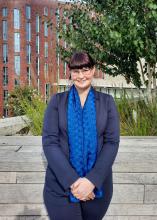Inhumations of skeletons with bioarchaeological evidence of disability tell stories of individuals needing intensive, specific, and individualized care.
An inhumation in a Stone Age settlement, located in present day Vietnam, known as Burial 9 lived for at least ten years as a quadriplegic, needing constant care while living in a small society constantly under the threat of famine. Despite the undeniable strain needing devoted care which took up significant time and scarce resources, Burial 9 was still valued and cared for, and is only one example of a well documented archaeological phenomenon. Our earliest ancestors supported, accommodated, and adjusted to the needs of disabled individuals in their communities, yet today, that deep care and empathy seems to have gone out the window. How is it that we seem to have forgotten the empathy and care that our early ancestors showed each other, shouldn’t this be a quality ingrained in our DNA?
Our society seeks to force disabled people to fight to adapt to a world that was built to exclude them. We follow The Medical Model of Disability, one that operates on normative standards that fault disabled people for simply existing within their own limits and needs; excluding them from bars, gyms, movie theaters, clubs, classrooms, and more. The Social Model of Disability, in contrast, seeks to adapt and change society at large to accommodate those with disabilities or impairments, removing societal obstacles which bar disabled individuals from succeeding within society. How can we as a modern society remember the teachings from our ancient ancestors and care for our most vulnerable with empathy and compassion? By adapting our society to operate under the social model of disability, and challenging the systems of exclusion within our society, we can work to create a global community operating through a perspective and lens of care and compassion for society’s most vulnerable.

